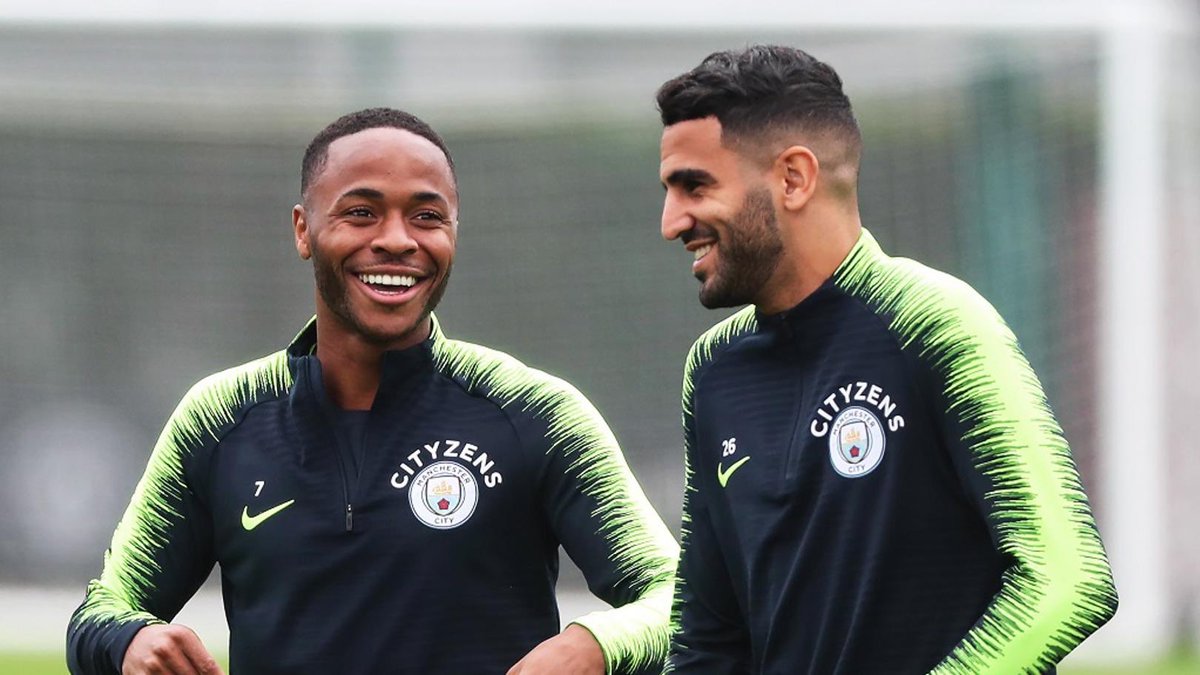NEW THREAD  Exploring the Psychology of Being a Player in the Pep Roulette. What are the mental consequences of frequent rotation? Which FPL players thrive, & which FPL players struggle? Lastly, how can we avoid the negative effects associated with heavy rotation? Please RT
Exploring the Psychology of Being a Player in the Pep Roulette. What are the mental consequences of frequent rotation? Which FPL players thrive, & which FPL players struggle? Lastly, how can we avoid the negative effects associated with heavy rotation? Please RT 
 Exploring the Psychology of Being a Player in the Pep Roulette. What are the mental consequences of frequent rotation? Which FPL players thrive, & which FPL players struggle? Lastly, how can we avoid the negative effects associated with heavy rotation? Please RT
Exploring the Psychology of Being a Player in the Pep Roulette. What are the mental consequences of frequent rotation? Which FPL players thrive, & which FPL players struggle? Lastly, how can we avoid the negative effects associated with heavy rotation? Please RT 
1a) Early research by Rotella and Newbury (1989) suggests that regular bench warming caused by heavy rotation is associated with an identity crisis, questioning themselves as an athlete and as a person...
1b) ... this identity crisis is more common in young athletes but also seen in adult professionals! It may result in players struggling with consistency when given the chance, and being overly risky, attempting things that are not in their usual repertoire.
2a) Alternatively, it could cause the opposite, know as ‘fear of failure’ (Sagar, 2009). This fear of failure can cause reduced risk-taking, which can result in ineffective footballing performance, as pro players MUST take calculated risks. To explain this further..
2b) ... In Rotella’s study, a professional footballer was quoted as saying that “when you don’t get much playing time it is very hard to play without fear” - in other words, the worry of making a mistake due to irregular playing time, results in ‘safe’ & uninspiring performances!
2c) Therefore, players can go one way or the other - they can feel obliged to take unnecessary and detrimental risks that cost their team, or they can be fearful of making a mistake that could lead to further benching, and as such appear non-existent. Both are negatives!
3a) Which personality types will suffer/thrive? Research suggests that individuals high in punishment sensitivity respond positively to the possibility of punishment, in this case, being dropped (Beattie, 2017). Alternatively, those high in reward sensitivity respond positively..
3b) ...to the possibility of praise and reward for their performances (i.e. consistent playing time). Think to yourself, which are you? Do you perform better when there is the chance of reward, or the risk of punishment? (This was my MSc research so DM for further info).
3c) According to this research, individuals high in reward sensitivity will respond poorly to the Pep Roulette, as there appears to be no reward for performing well. No matter what, they seem to be rotated, even when they play well. This removes the incentive to perform!
3d) Alternatively, those high in punishment sensitivity will thrive under the risk of being dropped, and it will cause them to perform even better when they do play! You can find out which you are more sensitive to from a personality questionnaire & transformations (Corr, 2001).
4a) Applying this to FPL, I looked at attacking returns in games in which Mahrez vs. Sterling were in the starting XI, but in the previous game were benched and saw limited minutes... in other words, I was interested in the game straight after being victim of the Pep Roulette!
4b) Mahrez appears to be someone that responds positively to the roulette, thus probably high in punishment sensitivity. In the 10 games he has started following being benched, he has 4 goals & 5 asissts, impressive numbers!
4c) Alternatively, in a much smaller sample of 4 games (and in the midst of a difficult personal season), Raheem Sterling has 1 goal & 0 asissts. This would suggest Sterling might have high reward sensitivity, and may need reward and gratification, not the risk of being rotated!
4d) Taken with a pinch of salt, this would suggest Mahrez has the personality type more suited to being rotated heavily and thus better for the Pep Roulette. However, only through conducting Psychological testing would we uncover if this is true!
5a) Moving back away from FPL, for those of you interested - how do we avoid the negative effects of rotation? The most clear way is to foster team cohesion and merge individual goals with team achievements (Leo et al., 2016)...
5b) When a player is concerned with individual accolades and bettering their career, they will see their rotation as an insult and negative. If their individual goals are formed around the team, then the overall team goal becomes the most important...
5c) As such, their concern is with helping the team, and if they are rotated, they will see that it is a decision made for the betterment of the team.
6) Lastly, communication between the coaching staff and player is vital. The player must be clear of their role, to avoid what is known as ‘Role Conflict” (Collins, 1999). If they are clear on their role, they can adopt and embrace this role, even if it means limited minutes!
I hope you guys enjoyed this thread. Ultimately, some players will be suited to rotation and others will not, it is up to the coaching staff to foster team cohesion and make sure the player is clear of his role. Mahrez looks to be a player that responds well to the Pep Roulette!
What other topics would the #FPLCommunity like me to cover? I have a few ideas but I would like to hear what you guys think, and as always I’ll make sure to apply as much as possible to FPL  let me know by replying to this
let me know by replying to this  #FPL
#FPL
 let me know by replying to this
let me know by replying to this  #FPL
#FPL
@FPL_Swe @LetsTalk_FPL @lateriser12 @FPLFamily @FPL_physio @FPLEditor @FPLGeneral @FPLGOAT7 @FPLnumbers @Fpl_Elite @FPL_ElStatto @FPLCoach @FPL_American @BigManBakar @BenCrellin @FplAdama @idkfpl @TheFPLPrince @WGTA_FPL @FPL_Heisenberg @fplsalah1 @FplStrategy @FPL_Guidance

 Read on Twitter
Read on Twitter














